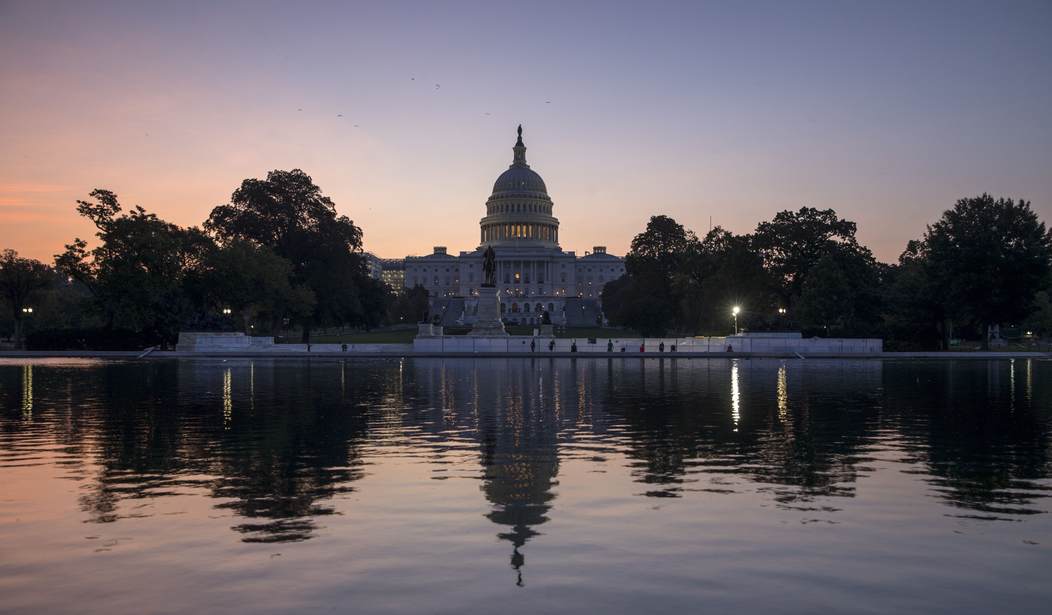It’s a lie to claim that nothing really bad will happen if the U.S. defaults on its $31 trillion national debt. It’s also a lie to claim that default will destroy “the full faith and credit of the U.S.” and create panic in the streets, human sacrifice, dogs and cats living together… mass hysteria!
Boys and girls — Congress has already been there and done that. We and the rest of the world are waiting for the other shoe to drop, the shoe representing the world finally tiring of Congressional pettifogging and moving on from using the dollar as the primary international reserve currency.
It doesn’t matter what would replace the dollar. It’s not even clear that the world needs one reserve currency. But if you want financial chaos and something akin to revolution, you can’t do better than dropping the dollar as the reserve currency for the world.
Strangely, we don’t need a debt default to do that. But it’s a possibility that a U.S. default would trigger a full retreat from the dollar. And in keeping with the theme of this article, it’s also possible that a U.S. default would do no such thing… or something.
I see the point of those who worry about “worst-case scenarios.” The U.S. economy is not a social science experiment, and if there’s a chance of something really, really bad happening, it would be prudent and wise to raise the debt limit and then deal with the deficit and the national debt.
Again, been there, and done that. And with the United States one severe debt crisis like 2008 away from the worst financial meltdown the world has ever seen, maybe it’s time to hit that great, big, red button on the console in front of us. The one that says “PANIC”!
What the Democrats are proposing in not negotiating on the debt limit is more of the same. More of the same out-of-control spending. More of the same unconscionable adding to the national debt. More of the same power grab from the states and the people.
At $31 trillion in debt, “more of the same” has to be simply, and finally, unacceptable.
Rep. Garret Graves (R-La.) has been deputized by Speaker McCarthy to negotiate a debt plan with the Democrats. Graves has his work cut out for him, and he knows it.
“We sent a telegram to Buckingham Palace to let them know that they’re not in charge anymore,” Graves said Friday, two days after his deal narrowly passed the House with only GOP votes. Graves was jokingly portraying Biden as King Charles II who refused to acknowledge the supremacy of parliament.
“We actually have a Congress, we have a people’s House that they have to negotiate with,” he said.
The Democrats, on the other hand, don’t believe they have to negotiate on anything.
“The question here is, should we default and should we reward holding the threat of default as a hostage? No, and no. It’s not real complicated,” Sen. Chris Coons (D-Del.) said in an interview Thursday.
But Coons is wrong — and right. It’s not complicated but not for the reasons he stipulates.
“Our job is to pass something, the Senate’s job is to pass something, the White House’s job is to either sign it or to negotiate,” Graves told reporters Friday. “And so I’m not sure what else we can do, other than do our job, send them a bill, and now it’s 100 percent in their lap.”
The nation needs a new debt limit. Republicans have used their majority in the House to pass one. Now the measure moves on to the Senate where negotiations can begin, right?
No way, says Coons.
“Any negotiation, quote-unquote, about the debt ceiling is a negotiation about whether we should default. The answer is simple, and the answer is no,” Coons said.
And that’s where we are. Democrats have been given a bill to raise the debt limit. They don’t like it. They haven’t proposed one of their own and won’t do it. They want to do the House’s job, the Senate’s job, and the President’s job all at once.
All of this rhetoric is fine and dandy — until there’s an “official” deadline. Treasury Secretary Janet Yellen is in the process of crunching numbers — tax receipts in and spending out — and will shortly say to Congress, “After ‘X’ date, the U.S. will default… I think.”
The bipartisan “Problem Solvers Caucus” doesn’t want it to get that far. The 64 Republicans and Democrats are proposing that a commission be set up to examine fiscal and debt issues to try and find a solution.
“However you want to frame it, we’ve got to sit down and talk. And so I think it’s critically important that all the parties sit down, at the White House with the president, and start having these conversations. And they should meet every single day until they get there, together,” Rep. Josh Gottheimer (D-N.J.), co-chairman of the bipartisan Problem Solvers Caucus, told reporters Friday.
It’s dreamy, isn’t it? That’s not going to happen. The reason is simple: there are about a dozen Republicans who want the U.S. to default. They see this as a last chance to get control of the nation’s finances and force the Democrats to deal — even if the nation tips into an economic meltdown.
Irresponsible? Many will say that. I say that if politicians won’t do what’s necessary to get our debt and our spending under control, someone else is going to have to do the job. Maybe the IMF can bail us out like it did half of Europe. Or maybe a consortium of world banks can do the job.
Something has to be done.









